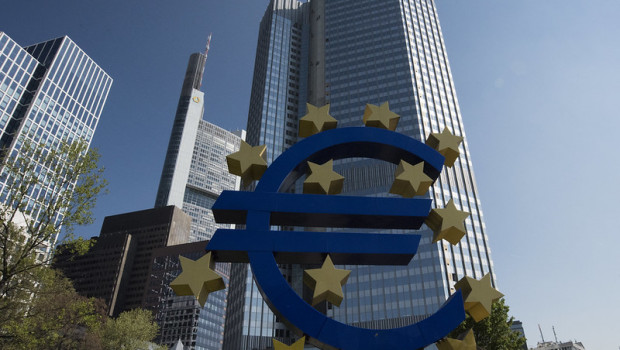Eurozone Q4 GDP growth edges past forecasts

Economic activity in the single currency bloc held up at the end of 2022 despite the drag from an unexpected contraction in its largest economy.
Economic activity in the single currency bloc held up at the end of 2022 despite the drag from an unexpected contraction in its largest economy.
Nonetheless, some economists believed that the data overstated the underlying strength of the economy and of domestic demand in particular.
According to a preliminary estimate from Eurostat, Eurozone gross domestic product expanded at a quarter-on-quarter clip of 0.1% during the fourth quarter (consensus: 0.0%) and by 1.9% from a year earlier.
That outperformance relative to expectations was due to slightly better-than-expected outcomes in France where GDP expanded by 0.1% on the quarter, in Italy where it dipped by 0.1% (consensus: -0.2%) and Spain where it rose by 0.2% (consensus: 0.1%), all of which offset an unforeseen 0.2% drop in German GDP (consensus: 0.0%).
At first glance, the GDP results appeared to chime with recent survey findings which had hinted at weakness in the euro area's core.
The data also meant that, at least for now, the euro area looked set to skirt a technical recession, or two consecutive quarters of falling GDP, even if activity did finally dip at the start of 2023.
Nonetheless, Claus Vistesen, chief Eurozone economist at Pantheon Macroeconomics, said he suspected that the drag from domestic demand was compensated for by net trade.
Eurostat does not provide a detailed breakdown of the components of GDP on an expenditure basis alongside its preliminary estimates.
Vistesen also called attention to recently published M1 money supply figures for the euro area and what they might entail.
"Business surveys rose in January, and point to EZ GDP broadly stagnating in Q1, but leading indicators—such as the real M1 data—point to the surveys dropping back over the coming months," he said.
"We think EZ GDP will fall this quarter, as higher interest rates and tighter lending standards discourage investment while still-high inflation keeps a lid on household spending, offsetting any continued boost from net trade [...] This will embolden the ECB to continue on its steep tightening path to fight inflation."
For his part, Rory Fennessy at Oxford Economics said: "We will be revising up our 2023 forecast on account of today' numbers, but annual growth is still likely to be weak.
"Even as inflation eases, it will take time for real incomes to recover fully. The impact of ECB tightening will also continue to feed into the real economy. Despite the recent positive turnaround in survey data, this is unlikely to translate into a robust performance for eurozone GDP."